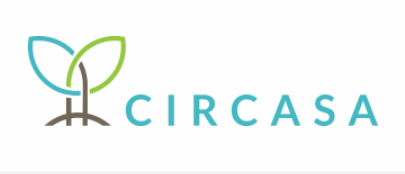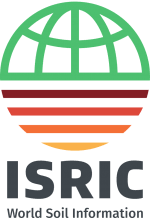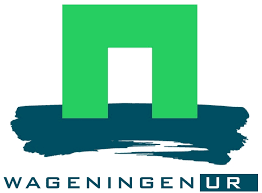The CIRCASA Project is hosting the webinar: “Strengthening the research community and structuring knowledge” on Friday 03 May, 2019.
In this webinar, the CIRCASA WP1 leader and colleagues will present the WP1 (Workpackage 1: Strengthening the research community and structuring knowledge) activities, first results of the researcher’s survey, as well as current cartography of the scientific network working on the field of soil organic carbon sequestration in agriculture.
Programme: 1 hour
Intro: WP1 overviews and activities: Pete Smith
Researchers survey results: Andy Bray
The Research Network: Jan Verhagen
Speakers:
Pete Smith – WP1 leader, Professor of soils and Global Change at the Institute of Biological Sciences at the University of Aberdeen, Scotland, UK.
Andy Bray – Research fellow, specialising in biogeochemistry and environmental mineralogy at the School of Earth and Environment, University of Leeds, UK.
Jan Verhagen – Senior scientist, specialising in agricultural systems, carbon cycle, and climate adaptation at the Wageningen Plant Research, Netherlands.
A position in Greenhouse Gas Emissions and Mitigation is available at the Department of Agroecology, Section of Soil Fertility in Denmark.
They are seeking an internationally competitive, innovative and successful research leader, who wants to work with highly engaged and motivated staff in a positive and dynamic international working environment.
Please note all applications must be made online and received no later than: 05.01.2019
For more information about the position and how to apply – click here.
The CIRCASA project, to coordinate soil organic carbon research, are seeking stakeholder views on the role of Soil Organic Carbon (SOC) management for climate change mitigation and sustainable development.
If you are a farmer, landowner, public official, a non-profit organisation, private business, in academia, a member of civil society, a government authority, or dealing with soil organic carbon management in any other way, the CIRCASA project team would love to hear your opinions.
There are no ‘right’ or ‘wrong’ answers. The survey takes around 30 minutes to complete. It is available in seven languages. Your answers will be treated confidentially and anonymously. The data generated will be analysed to make comparisons across stakeholder groups and countries around the globe.
The results of the stakeholder survey will inform an international research agenda on SOC management. Such an agenda will strengthen coordination in global research on SOC management in agricultural soils, leading to improved understanding and scientific basis to target ambitious practices required to preserve and enhance SOC.
Follow the link below to contribute, the survey is open until 31 October 2018.
The Coordination of International Research Cooperation on soil CArbon Sequestration in Agriculture (CIRCASA), initiated in November 2017, has announced that its website is now up and running at https://www.circasa-project.eu/
CIRCASA aims to develop international synergies concerning research and knowledge exchange in the field of carbon sequestration in agricultural soils at European Union and global levels with active engagement of all relevant stakeholders. Specifically, it seeks to:
* Strengthen the international research community on soil carbon sequestration in relation to climate change and food security;
* Improve our understanding of agricultural soil carbon sequestration in different agricultural systems and pedo-climatic conditions and its potential for climate change mitigation and adaptation and for increasing food production;
* Co-design a strategic research agenda with stakeholders on soil carbon sequestration in agriculture;
* Better structure the international research cooperation in this field.
The Global Research Alliance is one of the major international initiatives participating in the CIRCASA project, along with 4 per 1000 – Soils for Food Security and Climate and the Joint Programming Initiative on Sustainable Agriculture, Food Security and Climate Change (FACCE-JPI). The Climate Change Agriculture and Food Security program (CCAFS) and the Water, Land and Ecosystems (WLE) programs of the CGIAR, and the Intergovernmental Technical Panel on Soils (ITPS) of the Global Soil Partnership (GSP) are also involved, along with 23 Partners.
A Global Soil Organic Carbon Map has been released by the Intergovernmental Technical Panel of the Global Soil Partnership at this year’s World Soil Day, by our Partner the Food & Agriculture Organisation.
The map, based on data from 110 countries, is designed to provide users with information to help monitor soil condition, identify degraded areas, set restoration targets, explore SOC sequestration potentials, support greenhouse gas emission reporting under the UNFCCC, and make evidence-based decisions to mitigate and adapt to a changing climate.
Click here for more information
The Global Research Alliance is delighted to welcome our newest Partner, ISRIC – World Soil Information.
ISRIC is linked to other global soil initiatives, such as the Global Soil Partnership, led by the Food & Agriculture Organisation. Together, ISRIC and the Global Research Alliance are looking forward to enhancing collaborations with countries and working on our Soil Carbon flagship, which is strongly connected to our existing Partner FACCE-JPI’s Coordination of International Research Cooperation on Soil Carbon Sequestration in Agriculture Horizon 2020 Coordination & Support Action (CIRCASA H2020 CSA).
Two highly qualified Scientific Officers are sought for INRA (National Institute for Agricultural Research) soil carbon programmes based in Paris, France.
1. Scientific Officer of the international research program on ‘Soils for Food Security and Climate’ (1-year position)
The research program has a focus on soil organic carbon, in relation with food security and climate change challenges.
2. Scientific Officer of the European funded project CIRCASA (3-year position)
CIRCASA (Coordination of International Research Cooperation on soil Carbon Sequestration in Agriculture) aims to develop international synergies concerning research and knowledge transfer on agricultural soil C sequestration at European Union (EU) and global levels.
Note that CVs must be received before 22 September 2017, and availability to start on 1 November 2017 is required.
In a recent study by Wageningen University & Research Centre, management interventions to increase the supply of organic carbon were tested with a linear programming model called NutMatch. NutMatch was applied to crop rotations with different mixtures of organic cattle slurry, pig slurry or compost, or with a mineral fertiliser. The study found that rotational crop residues, cattle slurry and compost each substantially contributed to soil organic carbon accumulation (range 200-450 kg C ha-1 yr-1); contributions of pig slurry and cover crops were small (20-50 kg C ha-1 yr-1). In terms of greenhouse gas emissions, it appears that the trade-offs between carbon inputs and emissions of greenhouse gases (notably N2O) or other pollutants (NO3, NH3) can be substantial.
The global initiative, ‘4 per mil, Soils for Food Security and Climate’ of the Lima-Paris Action Agenda was launched during the December 2015 COP21 in Paris. It includes both an action plan and a research program, and is supported to nearly 150 signatories (including countries, regions, international agencies, the private sector and NGOs).
A Scientific Officer is sought for a two-year tenure to assist in the development of the international research program focussing on soil organic carbon in relation to the challenges of food security and climate change. Development will be supported by CGIAR, the GRA, INRA, CIRAD, and IRD in France; and by other national, European, and international partnerships.
Candidates are required to be trained in soil, environmental, or agricultural science; and to excel both in communicating research results and in organising events. Professional experience (2-5 years) would be appreciated. Working languages are French and English. The position is based at INRA’s headquaters (downtown Paris), and will involve travelling.
Salary is 2480 Euro gross/month (2060 Euro net.month)
To apply, please send your CV and covering letter by March 31, 2016:
- To: Dr Jean-Francois Soussana ([email protected])
- CC: Patricia Sanchez ([email protected])

 Sweden’s EviEM has published a comprehensive database of all research from boreo-temperate ecosystems investigating the impacts of different agricultural management practices on soil organic carbon. Research covering a wide variety of different management practices, including soil amendments (such as lime addition, stubble retention, etc.), crop rotations, fertiliser application (organic and inorganic), and tillage (including reduced/conservation tillage and no tillage) has been categorised. The information has been published as a systematic map, comprised of a report describing the processes behind the review, a database of studies with columns of various descriptive information, and a geographical information system (GIS) that displays the database in an interactive cartographical map.
Sweden’s EviEM has published a comprehensive database of all research from boreo-temperate ecosystems investigating the impacts of different agricultural management practices on soil organic carbon. Research covering a wide variety of different management practices, including soil amendments (such as lime addition, stubble retention, etc.), crop rotations, fertiliser application (organic and inorganic), and tillage (including reduced/conservation tillage and no tillage) has been categorised. The information has been published as a systematic map, comprised of a report describing the processes behind the review, a database of studies with columns of various descriptive information, and a geographical information system (GIS) that displays the database in an interactive cartographical map.
Email Chair of Review Team ([email protected]) for more information



